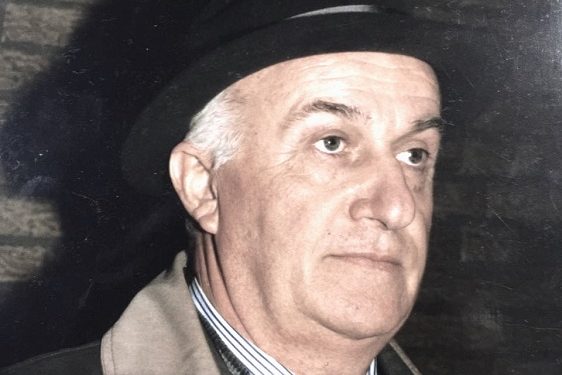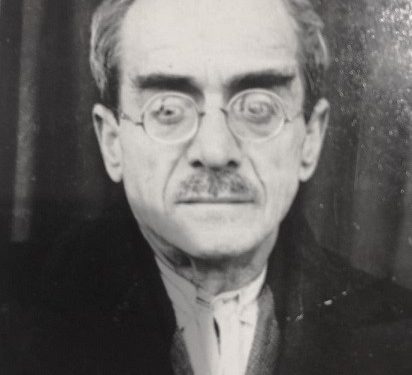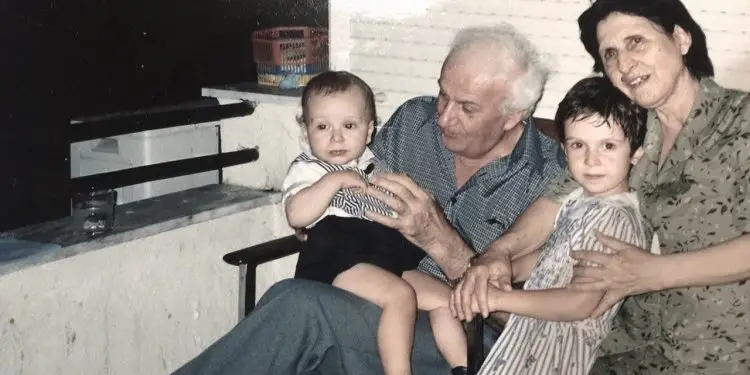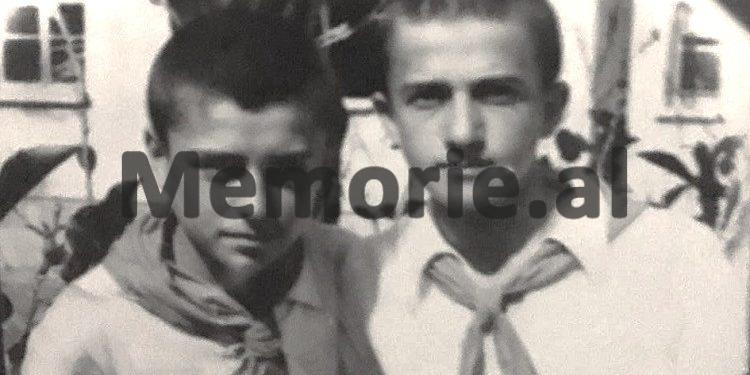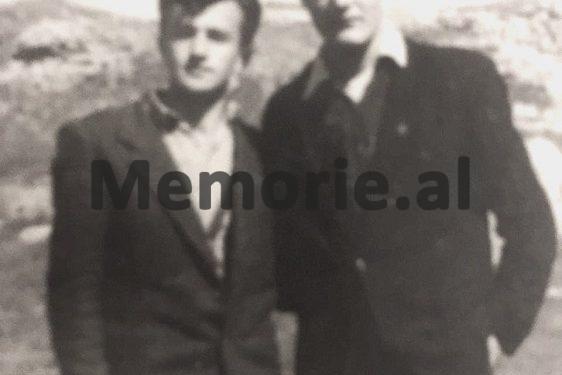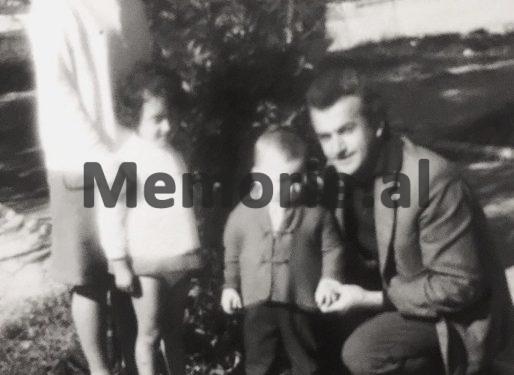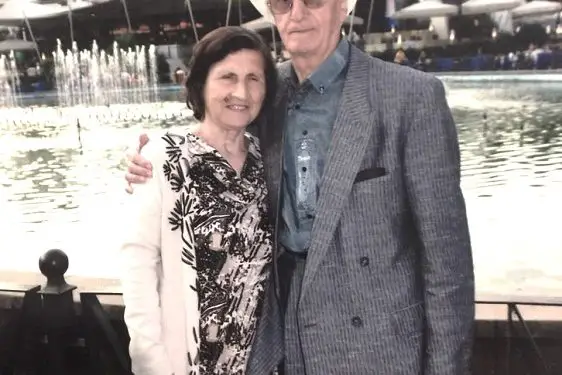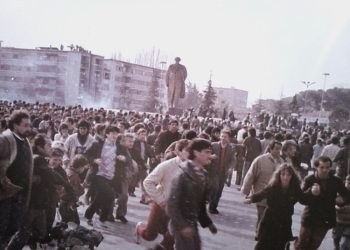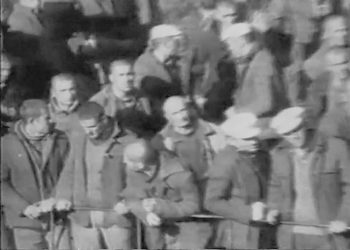From Sokrat Shyti
Part twelve
Memorie.al / The writer Sokrat Shyti is the “great unknown” who, for several years, has revealed the tip of the iceberg of his literary creativity. I say this based on the limited number of his published books in recent years, primarily the voluminous novel “Nata fantazmë” (Tirana 2014). His novels: “PËRTEJ MISTERIT”, “MES TUNDIMIT DHE VORBULLËS”, “GËRRYERJET E MAKTHIT”, “HIJA E TURPIT DHE E VDEKJES”, “KOLONELI KRYEDHJAK”, “SHPRESAT E NËMURA”, “PËSHTJELLIMET E FATIT” I, II, “MBIJETESA NË KASOLLEN E LOPËS”, as well as other works, all novels ranging from 350 to 550 pages, are in manuscript form waiting to be published. The dreams and initial excitement of the young novelist, returning from studies abroad full of energy and love for art and literature, were cut short early on by the brutal edge of communist dictatorship.
Who is Sokrat Shyti?
Having returned from studies at Moscow State University, right after the rupture of Albanian-Soviet relations in 1960, Sokrat Shyti worked at Radio “Diapazon” (which at that time was located on Kavaja Street), in an editorial office with his journalist friends – Vangjel Lezho and Fadil Kokomani – both later arrested and subsequently executed by the communist regime. Besides the radio, Sokrati, at the age of 21, if we may imagine, had passionate literary interests at that time. He wrote his first novel “Madam doktoresha” and was on the verge of publication, but… alas! Right after the arrest of his friends, to fill the cup, a brother of his, a painter, fled abroad.
Sokrat was arrested in September 1963, and in November of that year, he was sent into internment (together with his mother and younger sister) to a location between Ardenica and Kolonje in Lushnja. For 27 consecutive years, the family lived in a livestock shed made of reeds, without windows, while Sokrat was subjected to forced labor. During these 27 years, he was legally obligated to report three times a day to the regional authority. He had no right to move from the place of internment and was deprived of any kind of documentation, etc. In these conditions, among a livestock shed, he gave birth and raised his children. It was precisely from this event, or rather a very long history of persecution, that he was inspired to write the book “Survival in the Livestock Shed”!
Agron Tufa
Continued from the previous issue
EXCERPT FROM THE BOOK, “SURVIVAL IN THE COW SHED”
“They had just been released with fantastic illustrations of the most famous Russian painters: The King of Portraits, Repin. The Master of Composition, Ivanov. The Poet of the Forest, Shishkin. The Poseidon of the Sea, Aivazovsky. I politely told the seller, ‘You are a wonderful woman; if I could take a look at these great books.’ She smiled happily at this request, stepped out from behind the counter, sat me down at a nearby table, and asked me, ‘Which of these brilliant painters will you start with?’
-‘The short amount of time doesn’t allow me to observe the paintings in detail,’ I replied, hesitantly.
-‘These painters are so great that it seems a wonder how they could have captured the most striking events of the time with perfect mastery on canvas! The painting “Ivan the Terrible” with the lifeless body of the son, whom he himself had impaled out of fear of losing power, his horrified portrait, drives me shudder when I imagine it! Repin is a Shakespeare of tragedy in painting!’
-‘Which school did you attend?’ she asked with interest. ‘I know all the students from the Artistic High School in the field of Fine Arts, as they constantly come here.’
-‘I am a high school student. But in my family, the second brother is about to finish the Artistic High School. You must know him…,’ I added, telling her his name.
-‘Of course, I know him,’ she replied. ‘The loudest among all his friends!’ she said with a laugh. ‘They often come to the bookstore. They are the most regular buyers. They make their orders a month before supplies arrive.’
-‘But where do they get the money?’ I asked, curious.
-‘They collaborate with magazines, doing illustrations. Sometimes they are called by well-known painters as assistants when the painting is large and needs to be presented at a national exhibition on the specified day. But in what direction do you have your artistic inclination?’ she added with a smile.
-‘In the direction of scenic art…’
-‘Like your older brother?!’ she completed.
-‘Nevertheless, I feel that in the future, I will be drawn more to literature!’ I emphasized.
-‘Then the genetic legacy is fulfilled in the three brothers: The eldest, a stage artist. The second – a painter and sculptor. The third, a writer.’
-‘For me, it’s too early to give a definition since life is uncertain,’ I intervened. ‘While my two brothers have determined their future, passed their exams, and know in which fields they will work, I still can’t say what direction my life will take after finishing high school, considering the vast possibilities that this school offers.’
-“The intention and desire to become a writer do not depend on the field of study, but on inclination and will, how much you dedicate yourself. Because literature has only one artistic tool, the word, which seems quite ordinary compared to colors in painting and notes in music. Only those who have the ability to use words to create shocking events and convincing life-like characters deserve to be called a writer,” she emphasized as she walked to the counter. “I will tell the family painter that your younger brother came here before leaving for Shkodër and was interested in works of figurative art. I will surely add my impression: as far as appearance and speech are concerned, you have nothing in common.”
-“Please don’t mention the latter, because he gets angry!” I pleaded. “It sounds like I’m complaining and pulling up criticism. You surely know his type, you know he doesn’t accept any opinion or evaluation if his ego is touched even slightly. So it’s better if you don’t mention my visit to the bookstore at all!” I added, extending my hand to greet her.
I left the large Soviet bookstore with mixed feelings. On one hand, the conversation with the pleasant saleswoman gave me joy; on the other hand, her description of my second brother as a loud type left a bitter taste, because it further reinforced his difficult ego, which could become a serious obstacle to his artistic career in the future if not controlled in time.
It is known that excessive caprices, when accompanied by an inflated ego, return as a boomerang to the individual, at the moment they take on exaggerated dimensions, considering the constant fact that in every social circle, there are always norms and limits of endurance that must be respected. Otherwise, when you violate them, fractures and rifts emerge, leading to complete severance; as a result, the nihilistic egoist remains a miserable, abandoned individual, even though they have created a treasure of dignified works!”
I returned to the travel agency, near the city clock, burdened with the impression of my visit to the Soviet bookstore. I noticed that the line bus had parked right next to the high platform. I heard passengers complaining loudly: “When will they take these World War I vehicles out of circulation, which take our breath away with the narrowness of their interior space and move slowly, like those who have just come out of the hospital?!” A crowd of needy people was waiting at the counter, hoping that the reserved tickets wouldn’t sell out.
I knocked on the door. The attendant told me I had arrived at the right time.
-“Now take your suitcase and go downstairs, next to the bus,” he said. “In a moment, when boarding starts, I will be present too. And don’t forget: as soon as you arrive in
Shkodër, say hello to my colleague for me…” he added with a smile.
Returning to the student city brought different impressions and experiences compared to the day of departure when I was overwhelmed by the confusion of the unknown mystery and was filled with doubts revolving around the question: “Why did the Pedagogical Council make this decision about me?” The explanations from the principal of the Gymnasium did not convince me. During the journey, my curiosity grew about how I would be welcomed in the dormitory after such a long separation of three months, especially after my sudden departure without meeting any friends.
Meanwhile, I wanted to know if any changes had taken place during this time. Therefore, as soon as I arrived in the northern city (after thanking the ticket seller for his care towards me and sending greetings from the head of the agency in Tirana), I took a careful look around to see if I could spot any dormitory residents waiting for someone from whom I could gather preliminary information.
Fortunately, I spotted my classmate, Mitika, who had arrived two days earlier with a “Jeep,” straight from Pogradec. After we embraced, he asked about my mother’s health and expressed condolences for my father’s passing.
-“How did he find out? Who informed him and when?!” I asked, curious.
-“The day after your departure, we dormitory students immediately noticed your absence because we didn’t know how to explain your leaving before the exam season…” he continued along the way. “The friends turned to me to mediate with the guardian, Fadili, since I have a certain closeness, and the door guard had seen you both together when you left, especially that it made a strong impression on him that your suitcase was being carried by the guardian.”
-“And what did the guardian say?” I asked, intrigued.
-“Something happened in your family, though he didn’t specify which member,” he replied.
-“And then?” I was interested.
-“After two days, guardian Fadili informed me of the truth: your father had passed away! Therefore, the school administration and the Pedagogical Council found it appropriate to send you home after the teaching process and the beginning of the exams.”
-“But what’s new from the dormitory?” – I changed the direction of the conversation. – “We have a new principal,” my classmate surprised me.
-“Has something serious happened during these three months that led to this measure?” I inquired.
-“According to guardian Fadili, the departure of Principal Muhamet was requested by the organizational structure…”
-“What does this expression mean?” I added.
-“The governing bodies found it reasonable that the leading role of the Party in the dormitory and the school should be strengthened more,” Mitika responded. “To this end, the arrival of new dormitory students of adult age, with party membership, serves well. I learned that this year they brought in a new Russian teacher, a communist, aiming for the party’s basic organization to directly cover the entire activity of the dormitory and the school. In my opinion, this implies that there will be an increase in spies this year. I suspect the new principal has surely created his own network of informants and assigned communist dormitory students the specific task of raising revolutionary vigilance…” he emphasized, turning his head towards me.
Guardian Fadili welcomed me warmly and nostalgically. After thanking Mitika for accompanying me from the agency to here, we climbed the stairs so he could assign me a bed.
-“Leave your suitcase in my dormitory,” he said as we entered its narrow space. “Here it’s safe from any surprise inspections…” he emphasized with a sharp gaze. “This year, we have a new principal with two functions: state and party. Therefore, we must be careful during conversations with friends…!”
-“Even with friends?” I asked, surprised.
-“The danger can arise suddenly from any direction. It must be taken into account that words do not have a protective fence; they can be twisted and take various forms based on predetermined intentions,” the guardian stressed. “Especially be careful when discussing in groups of three or more, as the probability of a spy’s presence increases, and ‘eyewitnesses’ pop up like mushrooms after the rain…” he advised me. “Meanwhile, as I go to the economic office to notify them that you are to be allowed in, you should go down to meet your friends. But the new principal might also call for you to give instructions according to his perspective…!”
-“Where was Principal Muhamet transferred?” I asked, curious.
-“For now, he is at the disposal of the Education section.”
-“I feel sorry that they removed him from here! He was a leader and educator with inner depth; he knew how to communicate with us,” I emphasized.
-“But he lacked the most essential quality to be a principal,” the guardian pointed out with a sharp look.
-“He didn’t have the Party’s sticker,” I added.
-“Exactly. For us, the Party’s sticker constitutes the main pillar of an individual’s qualities.”
The guardian’s remark became fully apparent on a September day at the beginning of the new school year, when we students were lined up by class in the large courtyard, waiting to hear the welcoming speech.
Everyone was struck by the presence of an unknown person, portly and with a bald head, standing next to the principal of the Gymnasium. Except for a very few dormitory students, no one else knew his role, as he represented and chaired the basic party organization in three educational institutions (Dormitory, Gymnasium, Pedagogical School) and held considerable authority, with veto power, reversing any thought or decision from the Pedagogical Council, as his word had executive force. Thus, in his greeting, the secretary of the Party Committee for ideology, when addressing the teaching staff, mentioned the important role of the portly man with the bald head, urging the professors to gather their minds, to understand and be convinced, that above the Pedagogical Council and the school administration stands the secretary of the party’s basic organization. He emphasized several times that the strengthening of the Party’s vanguard role, especially in educational and cultural institutions, is of primary importance for the formation of the new man and the construction of socialism, since from these centers the light of knowledge is disseminated, enlightening the minds of future generations.
When we entered the classrooms, my desk mate, Xhaviti, whispered in my ear:
-“What do you think: why did they bring that big-bellied man as the Almighty?”
-“To diminish the role of the principal and stifle the thoughts of the professors,” I replied, also whispering.
-“Not only that,” my friend added. “They want to limit our entertainment: dance nights, excursions, artistic activities. That’s why they brought the new Russian teacher, as a communist, to keep an eye on us.”
-“I will have a double selection: one in the dormitory, the other here!” I emphasized, feeling desperate.
-“Here, you won’t face any trouble because everyone likes you, and I don’t believe there are any traitors among us,” he said.
-“Maybe not traitors, but ambitious people shouldn’t be ruled out.”
-“In my opinion, you need to be wary of the main danger in the dormitory, as among the large crowd of 500 people, spies proliferate. There’s a chance that among them are communists, aside from the ‘volunteers’ with their 120 lekë…” he added, bringing his lips close to my ear.
Our secret conversation was immediately interrupted as the door opened: the principal entered the classroom. At first, we thought he had come to deliver some message or special instructions as pre-graduates in our third year. But in fact, it was the first lesson of the hour; our class was starting with Psychology.
-“First, allow me, on your behalf and that of the Pedagogical Council, to welcome our wonderful classmate and student, Socrates, with the utmost confidence that he will continue to be the pride of the school!” rang his full voice, looking cheerful and directed at me. And immediately after these words, he clapped his hands.
Everyone except me applauded and turned their bodies towards me. Some kissed their hands, unable to embrace me. Meanwhile, Xhaviti squeezed me excitedly: he felt proud and happy that I was his desk mate!
The new Russian teacher entered our class majestically, with a hairstyle just like that of a village teacher—a combination of braids and a tightly pulled back section, laid and parted to the side in front. Perhaps she thought this style would make her appear younger, while in fact, it showcased her as older. Or maybe her intention was to elevate the seriousness of her authority, to show that she was different from others because she carried something they didn’t have, the Party’s sticker, thus her words carried much more weight.
Xhaviti, as a quick observer, characterized her nature this way, whispering to me:
-“Where did they find this old crow? Considering the fantastic canary that filled our classroom with the scent of flowers and brought us the spring breeze, I’m afraid this heavy-faced woman will make our lesson unbearable. I feel it already; the boredom is creeping in on me, and my interest in Russian is fading!”
She began the lesson by presenting her teaching method, her voice grating on our insides, telling us that a foreign language is explained through our Albanian language.
-“How should this explanation be translated?” my desk mate asked, somewhat puzzled.
-“Surely she will provide the clarifications herself,” I whispered back./Memorie.al
Copyright©“Memorie.al”
All rights to this material are exclusively and irrevocably owned by “Memorie.al”, in accordance with Law No. 35/2016 “On Author’s Rights and Related Rights”. It is strictly prohibited to copy, publish, distribute, or transfer this material without the authorization of “Memorie.al”; otherwise, any violator will be held liable under Article 179 of Law 35/2016.




